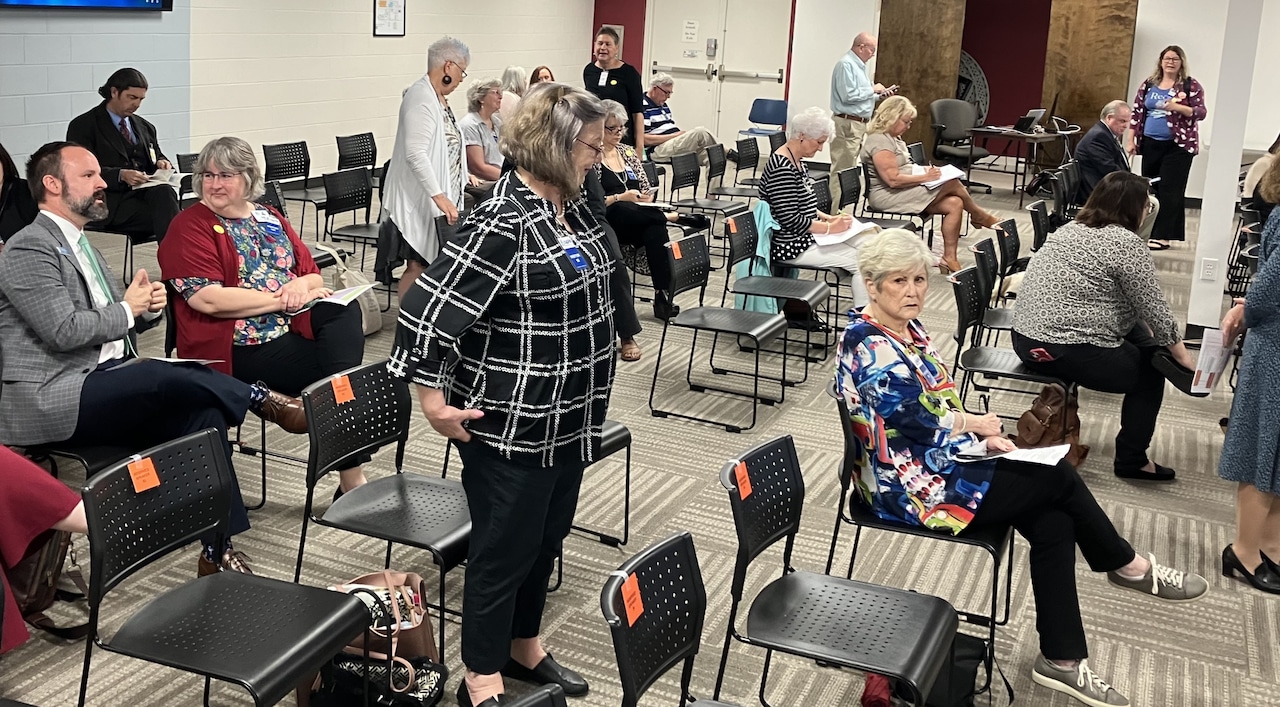Alabama’s state library agency wants to restrict books about transgender people and LGBTQ topics even further.
The Alabama Public Library Service filed a code change to the Legislative Service Agency on Aug. 29 that would effectively prohibit children and young adults from accessing any material that “positively depicts” transgender people.
That’s a more specific extension of current rules, which say libraries need to remove sexually explicit and inappropriate content from children’s sections.
The updated state code would say that “any material that promotes, encourages, or positively depicts transgender procedures, gender ideology, or the concept of more than two biological genders” is inappropriate for children under 18. The code excludes books on religion, history, biology or human anatomy.
The changes are part of an ongoing battle between conservative groups that want to move or remove books with LGBTQ topics and anti-censorship groups who feel book selection should be left to local libraries.
Clean Up Alabama, whose website lists books they consider inappropriate, said on Facebook that they want the APLS to go a step further and remove LGBTQ and sexually explicit books from libraries entirely and not just moved to the adult section.
“Ultimately, our publicly funded libraries must protect the children of Alabama and reflect Alabama values,” the group said in the post. “We must ensure that our libraries remain safe and trustworthy for families.”
The advocacy group Alabama Transgender Rights Action Coalition said the proposed change ignores the lived experiences of transgender people and suggests that negative depictions are allowed.
“This would establish a clear political and ideological bias in public library collections: transphobia is okay, trans acceptance is not,” the group said in a statement to AL.com.
“They have written off transgender youth as disposable and unworthy of basic recognition as human beings.”
This is the second time a code change has been made regarding book selection for minors. The first was in March 2024 and stemmed from a directive from Gov. Kay Ivey to relocate books that were “sexually explicit or other material deemed inappropriate for children or youth.”
Board member Amy Minton initially proposed the change in May because of the “What is a Woman?” law, which declares there are only two genders. President Donald Trump made a similar declaration in a Jan. 20 executive order.
“Does Alabama want to risk losing over 3 million dollars in federal funding currently going to our Alabama libraries?” Minton told AL.com in a statement.
Although anti-censorship organizations like PEN America and the American Library Association consider a book to be banned when it is removed or restricted, Minton insists Alabama’s efforts aren’t a ban. Millions of books are published annually, and libraries can’t accept them all.
“Selective censorship already occurs daily as librarians choose every day which books they will purchase,” Minton said.
Library advocacy group Read Freely Alabama told AL.com the APLS board is stacked with extremists trying to “censor our library collections and overstep its regulatory authority.”
“Controversial ideas are not prohibited for our youth to read under our Constitution, but the government is prohibited from telling parents which books they are permitted to read and expect to be present in age-appropriate sections,” the group said.
The APLS reported more than 100 books were challenged in Alabama public libraries in 2023. About 74% of the challenged books featured LGBTQ characters or themes.
There were 821 attempts to censor books and programming nationwide in 2024, according to the American Library Association’s Office for Intellectual Freedom. More than 2,400 books were challenged.
The public comment period lasts until Oct. 14. Comments can be hand delivered or mailed to the APLS.
If you purchase a product or register for an account through a link on our site, we may receive compensation. By using this site, you consent to our User Agreement and agree that your clicks, interactions, and personal information may be collected, recorded, and/or stored by us and social media and other third-party partners in accordance with our Privacy Policy.

